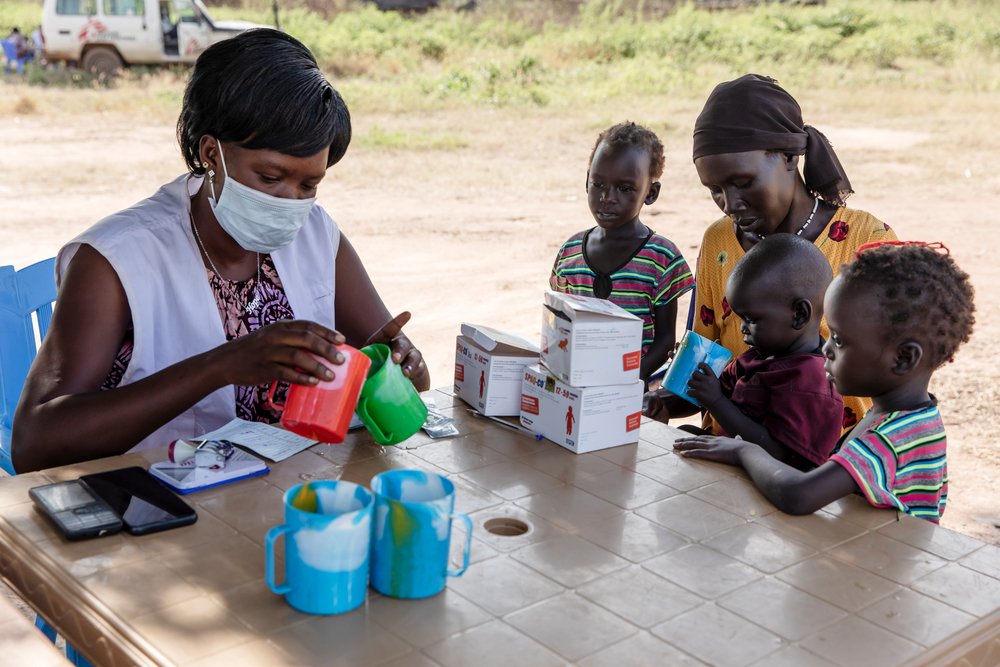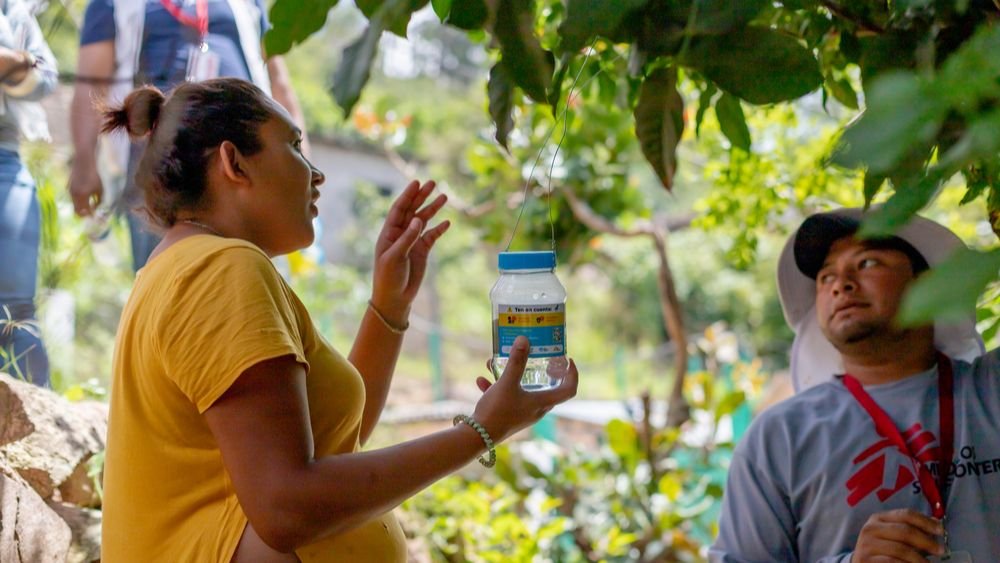
Planetary Health
The health impacts of a changing climate are already a burden for many people in the world, including those MSF assists. In the MSF Sweden Innovation Unit, we believe that climate mitigation and adaptation strategies much reinforce each other. However, climate change adaptation is all too often overlooked. Our planetary health work therefore focuses on innovations for adapting MSF's work to moderate negative health impacts of the climate emergency.
What is planetary health?
Planetary health is an interdisciplinary field focused on understanding the human health implications of the climate emergency as well as humanity’s footprint on our planet’s natural systems. The premise of planetary health is that human health and well-being over the long-term depends on the well-being of our planet.
The climate emergency is not a distant threat. It is already dramatically affecting vulnerable people across the globe. Many emergencies and protracted crises – droughts, floodings, disease outbreaks, conflict and displacement – will continue to increase in scale and frequency as the climate emergency accelerates. There is therefore a need to innovate to tackle new and emerging health challenges head on.
How does the SIU work in this domain?
The wider MSF Movement’s planetary health work is centered around three main pillars: advocacy, mitigation and adaptation. Activities under all three pillars must happen together to safeguard the health and well-being of humans and our planet. Yet, the third pillar – adaptation – is often overlooked in humanitarian planning and programming. In the last year, the MSF Sweden Innovation Unit shifted focus from mitigation to adaptation.
We work with colleagues, patients, communities and other external partners in the places where MSF operates to develop and implement new and improved methods for better understanding the adverse effects of climate change and environmental degradation. Together, we also work to design and pilot innovations to prevent or minimise the climate emergency’s negative health impacts.
Project spotlight – Malaria Anticipation Project
Despite uncertainties about exactly how climate change will affect malaria, there is little doubt that increased rains and warmer temperatures will affect the geographical range, intensity and seasonality of vector-borne diseases such as malaria.
MSF launched the Malaria Anticipation Project (MAP) in 2021. In Lankien, South Sudan, the MAP team has developed and piloted a malaria early warning system which predicts the timing and intensity of malaria peaks. Developed in collaboration with Data Scientists, the system uses mathematical machine learning-based models that have been trained on historical health data from MSF and weather and environmental data from open-access repositories from climate and space agencies.
Complementing the technical tool, the MAP team is working closely with the local community in Lankien to better understand health-seeking behaviours in the community. These insights can help MSF and partners plan a more appropriate response to anticipated malaria peaks.
Learn more about Planetary Health
What role does Innovation play in MSF’s Energy Transition?
Energy is key for MSF’s operations, from operating medical equipment to storing vaccines and medications. It is also is an area where technological innovations can help reduce MSF’s carbon emissions and simultaneously improve the quality of our services.
Fighting dengue with mosquitoes in Honduras
Dengue is a public health crisis in Honduras and the wider region of the Americas. MSF is working closely with local communities and health authorities in Honduras to prevent dengue and other viruses transmitted by mosquitoes.
MSF Climate Hub: Empowering climate action
MSF has set forth bold, organization-wide climate objectives. This MSF Climate Hub is designed to propel MSF towards these aspirations. It presents the latest climate-related news from the Movement as well as technical documents from MSF and others.




